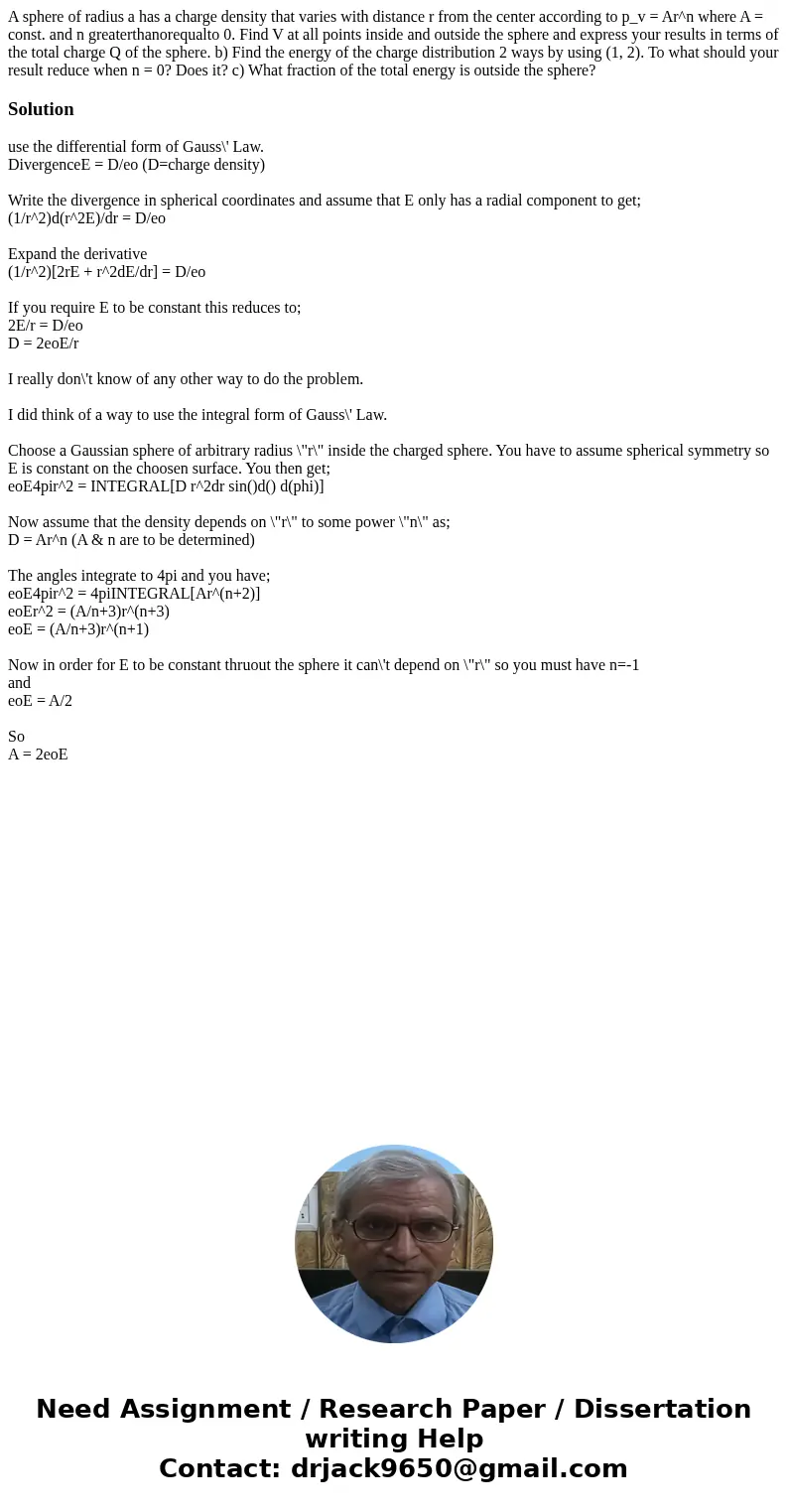A sphere of radius a has a charge density that varies with d
Solution
use the differential form of Gauss\' Law.
DivergenceE = D/eo (D=charge density)
Write the divergence in spherical coordinates and assume that E only has a radial component to get;
(1/r^2)d(r^2E)/dr = D/eo
Expand the derivative
(1/r^2)[2rE + r^2dE/dr] = D/eo
If you require E to be constant this reduces to;
2E/r = D/eo
D = 2eoE/r
I really don\'t know of any other way to do the problem.
I did think of a way to use the integral form of Gauss\' Law.
Choose a Gaussian sphere of arbitrary radius \"r\" inside the charged sphere. You have to assume spherical symmetry so E is constant on the choosen surface. You then get;
eoE4pir^2 = INTEGRAL[D r^2dr sin()d() d(phi)]
Now assume that the density depends on \"r\" to some power \"n\" as;
D = Ar^n (A & n are to be determined)
The angles integrate to 4pi and you have;
eoE4pir^2 = 4piINTEGRAL[Ar^(n+2)]
eoEr^2 = (A/n+3)r^(n+3)
eoE = (A/n+3)r^(n+1)
Now in order for E to be constant thruout the sphere it can\'t depend on \"r\" so you must have n=-1
and
eoE = A/2
So
A = 2eoE

 Homework Sourse
Homework Sourse